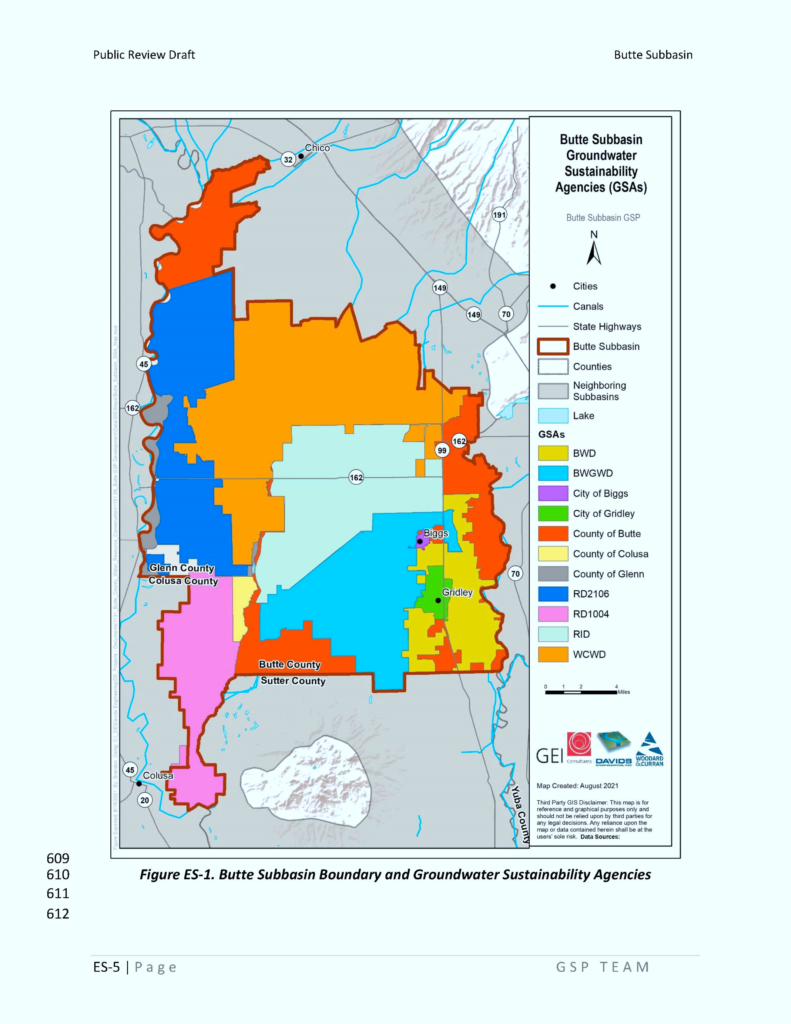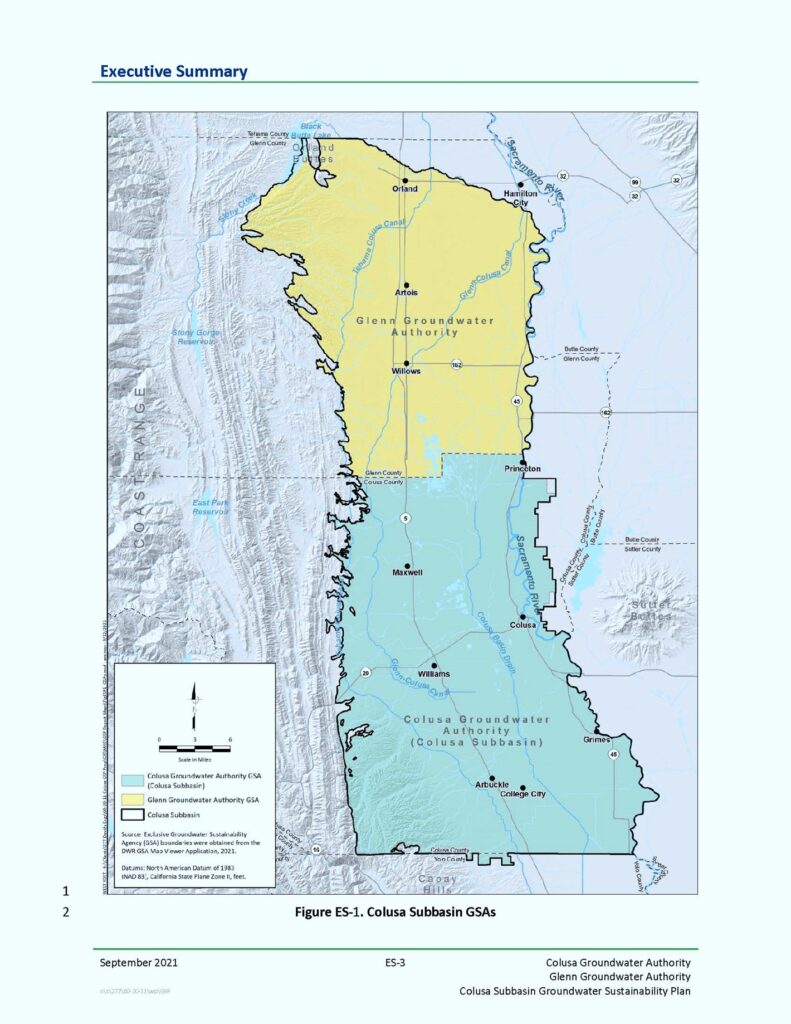Contact: Barbara Vlamis, AquAlliance: 530-895-9420
Chico, CA. AquAlliance filed three lawsuits against the Butte, Colusa, and Vina subbasins’ Groundwater Sustainability Plans (GSPs) in the last ten days with two co-plaintiffs, the California Sportfishing Protection Alliance and the California Water Impact Network. The GSPs are the result of state mandates from the 2014 Groundwater Sustainability Act,[1] which requires some protection of groundwater after allowing unregulated use since California’s formation.
The GSPs encompass large portions of Butte, Colusa, and Glenn counties and each present specific threats to the unsuspecting public dependent on groundwater and to the streams, rivers, trees, and species that are supported by healthy aquifers. Some of the dangerous policies and parameters include:
Butte subbasin GSP (Figure 1. Mostly Butte County with portions of Colusa and Glenn counties)
- Discloses that groundwater levels will drop by up to 100% of historic range.
- Accepts failure of at least 7 percent of the domestic and very deep aquifer supply wells.
- Allows groundwater pumping to increase that will result in stream flow loss from 90 to 277 percent.[2]
Colusa subbasin GSP (Figure 2. Colusa and Glenn counties)
- Permits the failure of at least 20 percent of domestic wells in the Colusa Subbasin, despite the requirement under SGMA that domestic wells be given priority.
- Accepts the loss of almost 1,000,000 acre feet of groundwater storage by 2070.
- Allows unreasonable and undesirable amounts of land subsidence.
Vina subbasin GSP (Figure 3. Butte County)
- Provides parameters that will cause hundreds of wells to fail, yet fails to disclose the quantity and percentage.
- Accepts monitoring well thresholds that are unreasonably low, including some that are approximately 200% below normal operating ranges.
- Inadequately mitigates the loss of wells by small farmers and residents.
The lawsuits find many failures in common. AquAlliance Executive Director Barbara Vlamis explained, “The three GSPs as written make it impossible to reach sustainability in the required 20-year horizon. In addition to specific failures noted above, they all identify projects and management actions that are ambiguous and unenforceable. They may cause serious harm, and none of them will protect groundwater dependent ecosystems as explicitly required by SGMA.”
“Despite common knowledge and some analysis, the Butte, Colusa, and Vina subbasin GSPs fail to adapt to serious impacts from expected climate change,” Vlamis continued. “This deficiency alone in the plans leaves them unenforceable and invalid,” she added.
Plaintiffs are represented by the Law Office of Adam Keats.
Additional Contacts:
Bill Jennings, CSPA: 209-464-5067
Adam Keats: 415-430-9403
#
[1] https://water.ca.gov/Programs/Groundwater-Management/SGMA-Groundwater-Management
[2] AquAlliance, 2021. Comments on the Colusa GSP: “This shows that the overall percentage of groundwater being pumped will be recharged from the streams in the Butte Subbasin (i.e. stream depletion)… In fact, with the Historical baseline, the loss exceeds the volume of groundwater being pumped, suggesting that the subbasin may be at a tipping point where the impacts from future pumping increases are amplified, causing significantly more harm than just taking 100 percent of the groundwater recharge from surface waters.” pp. 15-16.
View the 3 Complaints:
AquAlliance is a 501 (c) (3) non-profit public benefit corporation established to defend northern California waters and to challengethreats to the hydrologic health of the northern Sacramento River watershed to sustain family farms, communities, creeks and rivers, native flora and fauna, vernal pools and recreation. www.aqualliance.net
MAPS
Figure 1.

Figure 2.

Figure 3.

